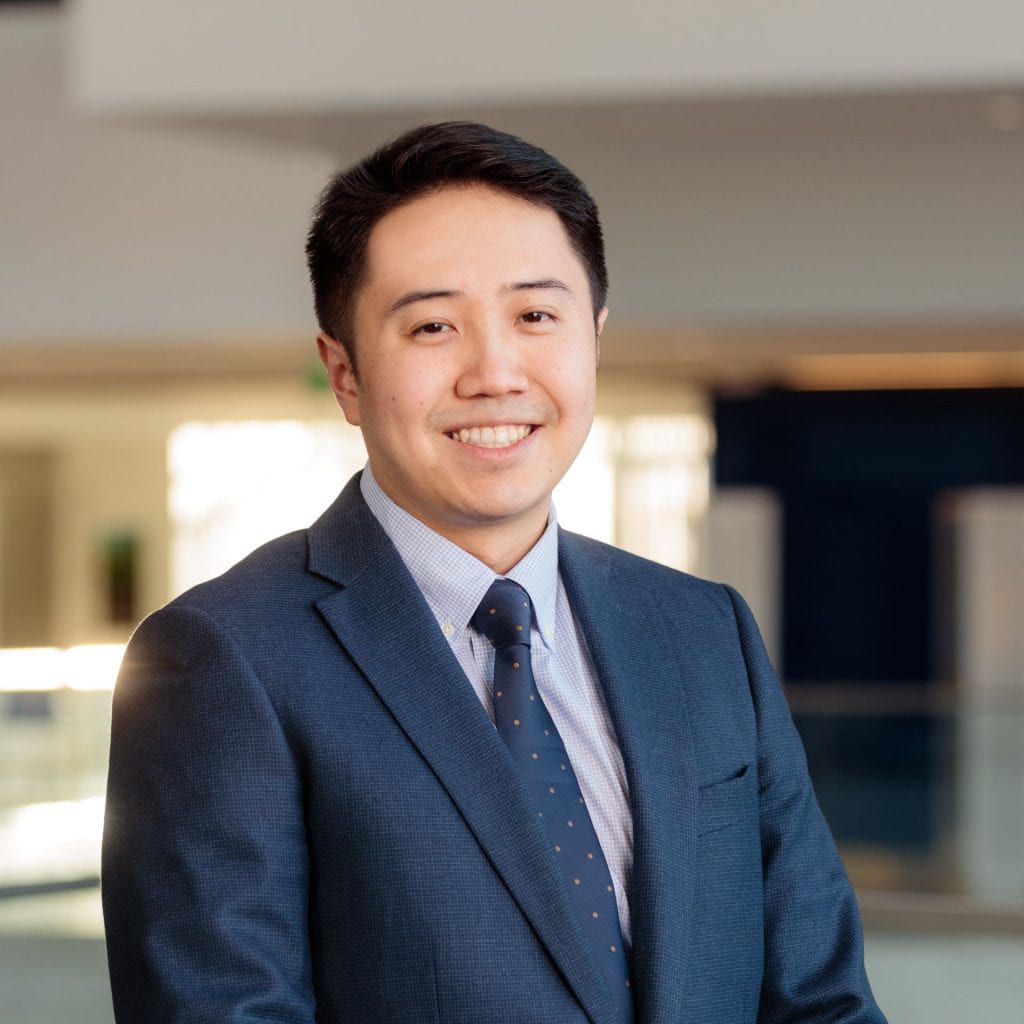
Dr. Stephen Lam is an Assistant Professor of Chemical Engineering at the University of Massachusetts Lowell. His research focuses on combining multi-scale material & chemical simulation, informed experiments, and advanced data analytics for the purpose of understanding chemical structure, reactions and property relationships. Stephen obtained a PhD in Nuclear Science and Engineering in 2020 from the Massachusetts Institute of Technology (MIT, USA), and BS in Chemical Engineering in 2013 from the University of British Columbia (UBC, Canada). He held the Postgraduate Fellowship from the Natural Sciences and Engineering Research Council of Canada from 2017-2020 and received research awards from the Tokyo Institute of Technology in 2017, Oak Ridge National Laboratory in 2016, and American Nuclear Society in 2016. His work includes the development of new computational tools to improve fundamental understanding of material properties, increase the prediction accuracy of simulations, and accelerate materials development for next-generation clean energy technologies including high-field fusion devices and advanced fission reactors. His ongoing research activities include the study of materials used in energy applications such as batteries, fuel cells, and advanced nuclear reactors. Dr. Lam has work experience in the materials, petroleum, and chemical processing industries and is a licensed Professional Engineer in Canada.
Assistant Professor (2020-present), University of Massachusetts Lowell, Department of Chemical Engineering
Research Assistant (2015-2020), Massachusetts Institute of Technology, Department of Nuclear Science and Engineering
Computational Material Scientist (2018), Robert Bosch, LLC
Facilities Engineer (2013-2015) Imperial Oil Resources, ExxonMobil Corporation
Continuous Improvement Specialist (2012), Imperial Oil Resources, ExxonMobil Corporation
Process Engineer (2012), Chemetics Inc., Jacobs Engineering Company
ENGY.5120 Nuclear Materials: Materials in sustainable nuclear energy applications including fission energy, fusion energy, accelerators, and medicine. Review of fundamentals of materials science, radiation physics, nuclear reactions, radioactivity, and ionizing radiation. Study of fundamental phenomena related to radiation-interactions with matter, and radiation damage in structural materials including ion-solid interactions, atomic displacement, defect kinetics, and microstructural changes under irradiation.
ENGY.3310 Fundamentals of Nuclear Science and Engineering: Overviews a variety of fundamental nuclear science and engineering concepts that form the basis for most contemporary nuclear technology applications Course topics include concepts from basic atomic and nuclear physics, modern physics, nuclear models and nuclear stability considerations, basic nuclear reactions and the conservation laws that govern these interactions, various radioactive decay processed, and the interaction of neutrons and gamma rays with matter. The energy dependence of neutron and gamma cross sections, the slowing down process, the computation of microscopic and macroscopic reactions rates, and the characterization of different materials used in a variety of nuclear applications are also addressed. A variety of practical applications are highlighted.
CHEN.3060 Transport Phenomena: This course introduces the theory and mechanisms of transport processes based on the conservation laws at both micro and macroscopic levels. Mechanisms for momentum, heat and mass transfer for both laminar and turbulent flow conditions are covered using integral and differential approaches. Practical applications of the theory will be explored.
CHEN.2050 Fundamentals of Electricity: An introduction to direct and alternating current of electric circuits with an emphasis on practical application. Chemical engineers need a basic understanding of how electricity is produced, what quantities are involved, how it can power a system and more. Numerical methods and python programming are introduced and applied towards solving problems in electricity.
Areas: Material s science and engineering, materials chemistry, atomistic simulation, fusion engineering, computational science and engineering, applied machine learning, nuclear engineering, thermodynamics and electrochemistry.
